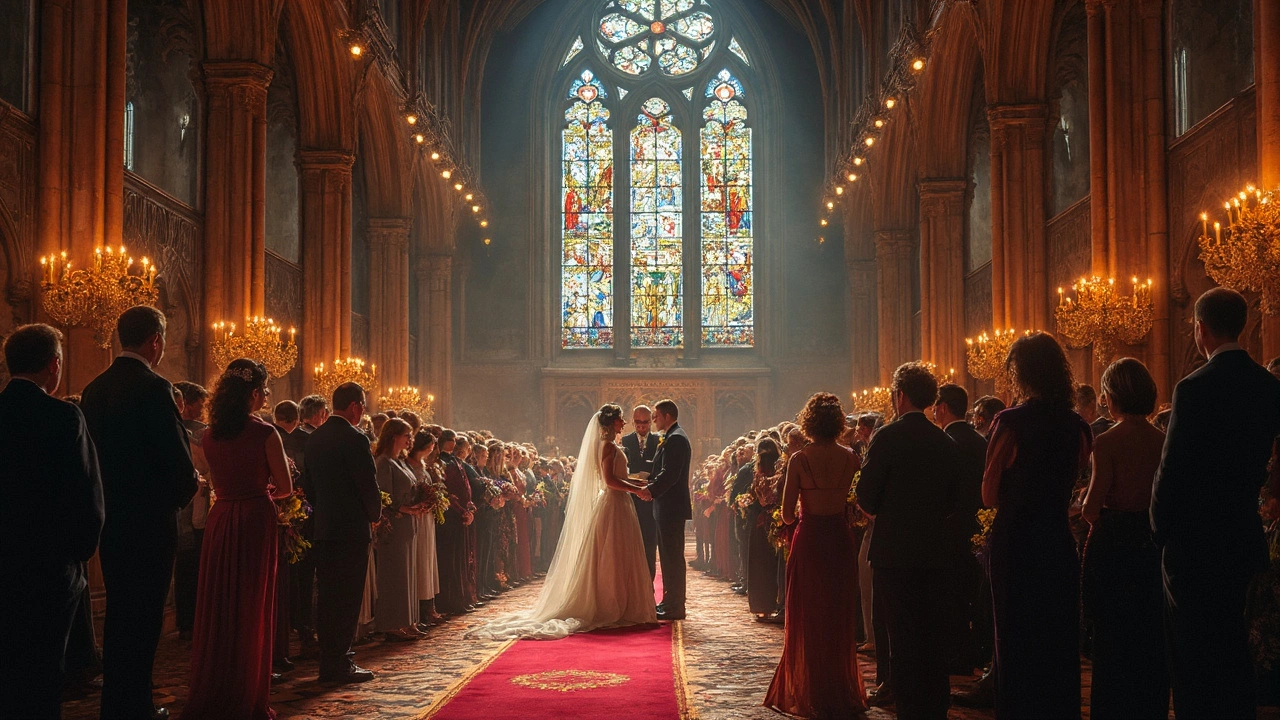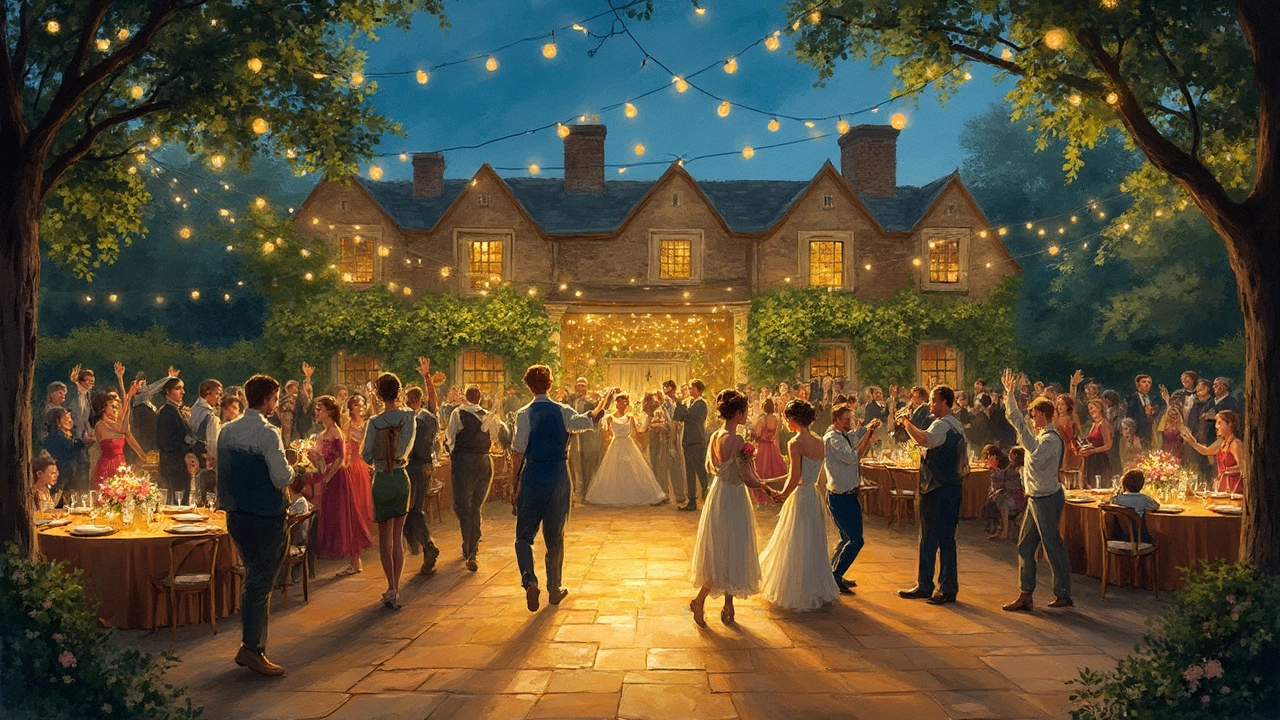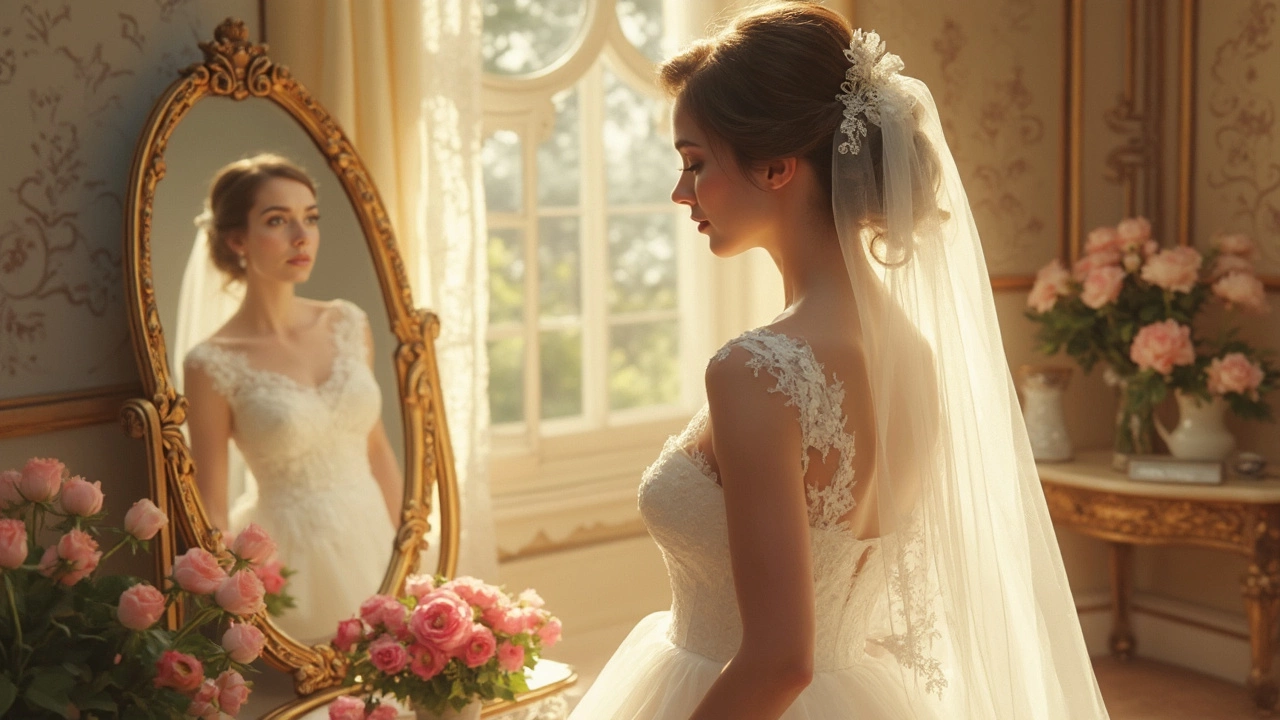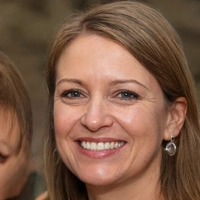Planning a wedding is like juggling flaming torches—there's a lot to keep track of! One thing you really don’t want to drop is hiring your wedding photographer for the right number of hours. But how do you figure out just how long they should be there? Well, the key is thinking about your entire wedding timeline. You want them to capture every tear and twirl, without needing to be there for auntie Betty's bedtime.
Most wedding photographers package their services based on hours, so knowing exactly when you need them can save a heap of stress and potentially, some bucks. A good start is considering when you'll need those cameras clicking—do you want those getting-ready shots, the ceremony itself, or just the grand party dancing? Prioritizing these will help you decide the right coverage.
- Why Timing Matters
- Morning Moments and Preparations
- Ceremony and Family Photos
- Reception Revelations
- Tips to Make the Most of Your Photographer
Why Timing Matters
Ever thought about why timing is such a big deal when booking a wedding photographer? Well, it’s more crucial than you might think. The hours you book them for can shape the story of your big day through photos. The right timing helps ensure they capture everything from grandma’s teary smile during the vows to your epic dance moves at the reception.
It’s not just about the photos you get—it's about capturing the vibe and essence of your day. Imagine accidentally missing those early morning prep shots with all the laughter, or your first dance because your photographer's time is up. Having a clear timeline with your photographer means you won't miss those must-have memories.
Consider this: a typical wedding day can range anywhere from 8 to 12 hours, depending on the size and complexity of your event. A survey found that about 75% of couples choose at least 8 hours of coverage to cover all essentials like pre-ceremony, ceremony, and a bit of the reception.
That said, you don’t want to book unnecessary hours either. If your wedding is more intimate or less focused on elaborate events, you might not need a full-day hire. Discussing your schedule early on with your photographer can save unexpected costs and stress later.
Ultimately, investing in the right amount of time with your wedding photographer not only determines the quantity of photos you get but also their quality and the natural flow of your wedding day. It’s all about balancing the clock with creativity!
Morning Moments and Preparations
The morning of your wedding is bursting with excitement and nerves all wrapped up in one, and capturing these initial moments is like setting the scene for the rest of the day. If you're on the fence about when to start your photographer’s clock, think about those special morning shots: the dress hanging by the window, the 'getting ready' giggles with your bridesmaids, and those intimate, emotional moments with family.
A lot of couples opt for the photographer to spend at least two hours before the ceremony with them. This window allows the photographer to snap candid shots of you both in your natural element, surrounded by people who mean the world to you. Plus, getting ready photos are totally Instagram gold!
Timing here matters because once you’re done with hair and makeup, it’s usually right into the dress, and then that exciting first look or those heartfelt interactions before everything goes bustling towards the ceremony.
- 30 minutes to 1 hour: Pictures of the venue and accessories, like the rings and flowers.
- 1 hour: Capturing the bride and groom getting ready, detail shots of outfits.
- 30 minutes: First looks with close family or between the bride and groom.
Keeping your photographer included during these initial hours also helps them understand the chemistry and dynamics of those around you, which makes it easier for them to capture genuine moments throughout the rest of the day.

Ceremony and Family Photos
The ceremony is like the heart of your wedding day. It's where all the magic unfolds—the vows, the rings, and maybe a few happy tears. Getting these moments perfectly captured means planning out how many wedding photographer hours you’ll need.
Typically, wedding ceremonies last between 20 to 45 minutes. You might think that's quick, but it's packed with must-have shots like the walk down the aisle, the first kiss, and the joy right after saying "I do." Hiring a photographer for at least two to three hours around the ceremony gives you ample time to capture these.
Then there are the family photos. Here's where things might get a little crazy—lots of people to organize and lots of names to shout out! It's worth noting that wedding photographers usually allocate about an hour for family photos. According to Jane Smith, a well-known wedding photographer from Wellington, "Family photos can be a tad challenging, but are so important to get right. Planning a few extra minutes for them can really pay off."
If you want to get the most out of your photographer, make a list of must-take family shots in advance, so you don't miss out on capturing loved ones.
Don't forget: the more relaxed everyone is, the better the photos turn out. Consider assigning a family member or a friend to help the photographer coordinate these shots—you'll thank yourself later! And if you want to get really organized, check out this neat guide for crafting a perfect family photo list: Wedding Photo List Guide.
By ensuring your photography schedule accounts for these key moments, you'll have a beautiful collection of memories with all your nearest and dearest.
Reception Revelations
The reception is where the magic happens! Everyone's relaxed, the tension has melted away, and it's time for you and your guest to let loose and celebrate. But capturing these moments isn't as straightforward as it seems. Knowing how many hours you'll need your wedding photographer during this part can make all the difference.
A typical reception can last anywhere from four to six hours, so consider how much of this time you want professionally documented. Essential moments include the cake cutting, first dance, bouquet toss, and those candid dance floor shots. Don't forget about speeches—they can be emotional (or hilarious) highlights of the evening!
Here's a little tip: chat with your photographer about the flow of events at the reception. They can help you figure out how to schedule things to make sure nothing important is missed. Plus, they'll know when to be on high alert for those spontaneous moments that make the best photos.
For more clarity, here's a rough guideline on how wedding photography hours might be allocated at a reception:
- First hour: Capture the entrance, guest arrivals, and some candid moments.
- Second hour: Speeches and toasts. Don't miss the reactions!
- Third hour: The cake cutting and first dance. Major must-haves.
- Fourth hour onward: Dance floor action and other group activities like the bouquet toss.
Budget permitting, consider having a photographer stay until the reception winds down. Those late-night shots of tired but happy guests can be worth it!

Tips to Make the Most of Your Photographer
You've booked your wedding photographer, and that's a big step. But how do you make sure you're getting the absolute best from them? It's not just about the hours—they need to be the right hours!
First things first, have a chat with your photographer about your wedding day schedule. They'll know the ins and outs of a wedding day and can help point out key moments you might want documented. This discussion can pave the way for a tailored photography plan that works with your timeline.
Be clear on which parts of the day matter most to you, and work backward from there. Want those romantic pre-ceremony shots where your dad sees you in your dress for the first time? Time it so your photographer is around for the prep moments. Dreaming about capturing your first dance as newlyweds? Your photographer needs to be there long enough, even if uncle John's speech runs over!
Here's a cool idea: create a 'do not miss' list of moments. Things like 'mom putting on my veil,' 'ring exchange,' and 'cake cutting' can go at the top. Share this with your photographer so they keep an eye out for these shots.
- Discuss logistics like lighting setups in advance, particularly for indoor venues or nighttime events.
- Consider a pre-wedding photo session, which could help you feel more comfortable in front of the camera. It can also act as a mini-rehearsal.
- Be prepared to go with the flow. Weather might change or timelines might shift, and having a flexible photographer—and a mindset to match—can keep things smooth.
And here's a neat tidbit: according to some lucky couples, spending about 8-10 hours with your photographer generally covers most wedding needs. Of course, this can vary based on the size of your wedding and how many important events you want covered.
Remember, your wedding photography is about more than just candid snaps—it’s capturing the essence of your day. Being clear with your photographer helps ensure those snapshots are of exactly what you dream of remembering!

